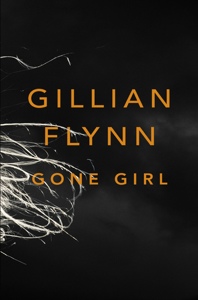
Great jacket, (only a) good book
I sat down to read this book wanting to love it. I liked it. But what could have been a completely absorbing debut fell just wide of the mark.
The premise is fascinating. Anna Bella Nor is a postgraduate student struggling to juggle the pressures of her impending PhD viva and caring for her young daughter, Lily, only to find these compounded when her supervisor is murdered and herself a suspect. The University of Copenhagen’s Biology department is likewise a great setting for a thriller, with oddball academics, underfunded projects and cut-throat internal politics providing a potentially explosive combination.
The narration is shared between three characters: Anna, Superintendent Søren Marhauge – the brilliant detective with a troubled past assigned to the case, and Clive Freeman – the murdered professor’s academic nemesis. Anna’s thesis, a scientific review on the evidence for and against the theory that dinosaurs have evolved from birds, puts her in direct competition with the increasingly unhinged Freeman, who holds fast to the increasingly discredited theory that dinosaurs evolved separately.
The novel is really more interested in the backstories of these 3 characters than in the resolution of the murder. This makes for a more gradual unravelling of the plot, and adds an extra dimension to your by-numbers whodunnit as you delve deeper and deeper into the stories that brought each of the characters to this point. You learn a lot about scientific method and review process, as well as dinosaurs, understandably given Gazan’s background in university biology.
There are some brilliant moments in the novel:
Søren was Denmark’s youngest police superintendent, he could identify a murderer from the mere twitching of a single, out-of-place eyebrow hair, he could knit backwards, and everyone he had ever loved had died and left him behind.
But there are also some terrifically stilted ones:
Anna knew perfectly well she hadn’t bumped into the World’s Most Irritating Detective in the supermarket by accident. […] She hated him! Since he had entered her life, less than a week ago, everything had started to unravel. How dare he buy a loaf of bread for Maggie, how dare he carry her daughter? She wanted him to leave her alone and she didn’t want to hear what he had come to say. […] Tears started rolling down her cheeks. The steamy mashed potatoes were in a bowl in the sink, and suddenly she slumped forward as if she had been stabbed.
This kind of frustrated outrage is characteristic of Anna’s tone, and while pop-psychologists might be able to explain it through some of her subsequent discoveries (I won’t spoil them here), I found a lot of her reactions were pretty unbelievable, and rang kind of hollow. Maybe this is partly down to issues of translation, but I get the sense it runs deeper than that.
This is not to say I didn’t enjoy the novel. The science is well done, the characters interesting, and the narrative propels you forward making this ultimately very entertaining. But that propulsion is brought about by promises that the book seems about to deliver, and then shies away from. For example, the novel opens with a dream sequence about the discovery of the first feathered dinosaur fossil. It sums up Anna’s ambition, it gives us a bit of background to what is at stake in this academic debate, but it’s the last time we ever see into somebody’s subconscious, and as we get dragged into the petty squabbles of a university department and the characters’ apparently unsurmountable past traumas, we totally lose sight of it.
Likewise, Freeman had the potential to be a phenomenal character, bringing out as he does the uncomfortable truth that the academic’s single-mindedness is often closer to mania. But this, and his fraught relationship with Jack, is never quite brought to the fore. We are supposed to believe that Anna must, must defend her thesis at all costs, rather than postponing it another month in light of a series of horrific murders (I have done my time as an academic, and can tell you that another month is never, never an unwelcome prospect – grizzly murders or no).
I wanted to start SecondShelfDown’s reviews with The Dinosaur Feather because it contains a lot that I love about good commercial fiction: it puts a unique spin on a time-honoured genre, and doesn’t shy away from the science either (incidentally, in this it reminds me a bit of The End of Mr. Y – I’ll do a piece on Scarlett Thomas in due course as she’s a very interesting hit and miss writer). It was well-packaged, well-conceived, and in parts, well-written. And that’s why it was so infuriating when it didn’t deliver. But it was – as I hope all the books on my second shelf will be – worth reading.
![]()
![]()
![]()
![]()
![]()




